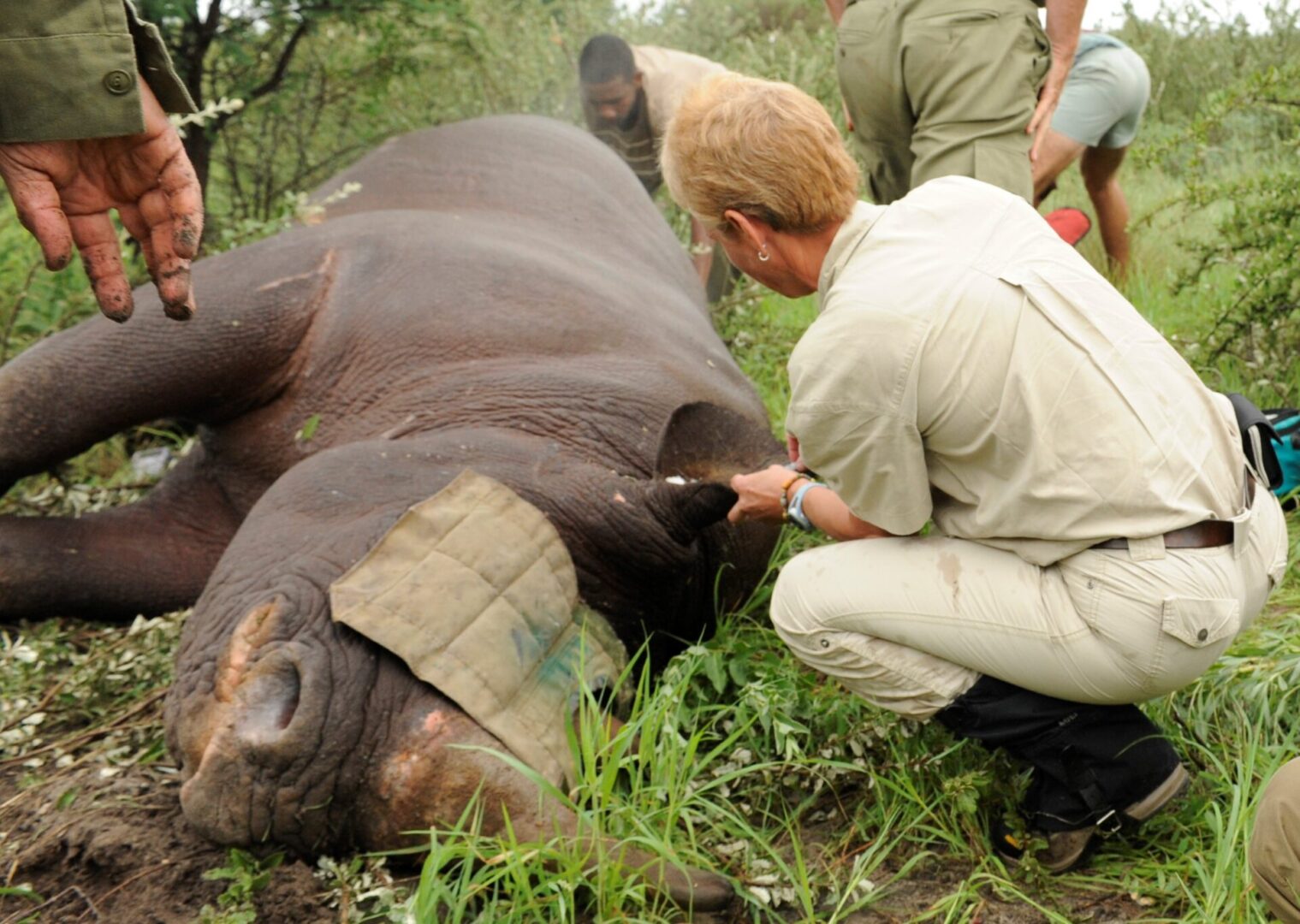Our Black Rhinos Need Better Healthcare
The black rhino is among the most endangered of the rhino species. This African native is slightly smaller than the white rhino and can be told apart by their hooked upper lip, compared to the square lip of the white rhino. The black rhino population began dramatically dropping at the beginning of the 20th century because of hunters and settlers. While numbers have increased since the 90's, black rhinos are still critically endangered.
Poaching and habitat destruction are significant threats to the black rhinos. Conservationists have moved them to private sanctuaries or other managed care locations in order to protect them. Unfortunately, they still develop health problems in their protected habitats.
Iron storage disease is among those health problems. This complex disease occurs when too much iron accumulates in the body. As a result, the liver becomes damaged, which can lead to illness and even death. Research is the only way that our veterinarians can solve this health issue for the black rhinos. When there is access to research, veterinarians can find faster means to diagnose, prevent, and treat this disease.
The Wild Animal Health Fund funded a research project on this very health issue in 2012. The first step was to compare blood profiles between wild and captive black rhinos. Researchers collected samples from rhinos in habitats throughout South Africa. Diet has emerged as a likely factor in this disease, an implication found only through this research.
The establishment of a regional laboratory in South Africa was another accomplishment in this study. This laboratory can analyze rhino blood protein using the highest standards. The staff in South Africa are now trained to track iron levels in wild rhino populations on their own. This capacity of training ensures continued progress toward eliminating this disease. Yay science!
How can you help?
More research means more answers for our species like the black rhinos. When you donate to the Wild Animal Health Fund, 100% of your donation goes to the animals, never admin or overhead. Donate today and see the impact you can have!

